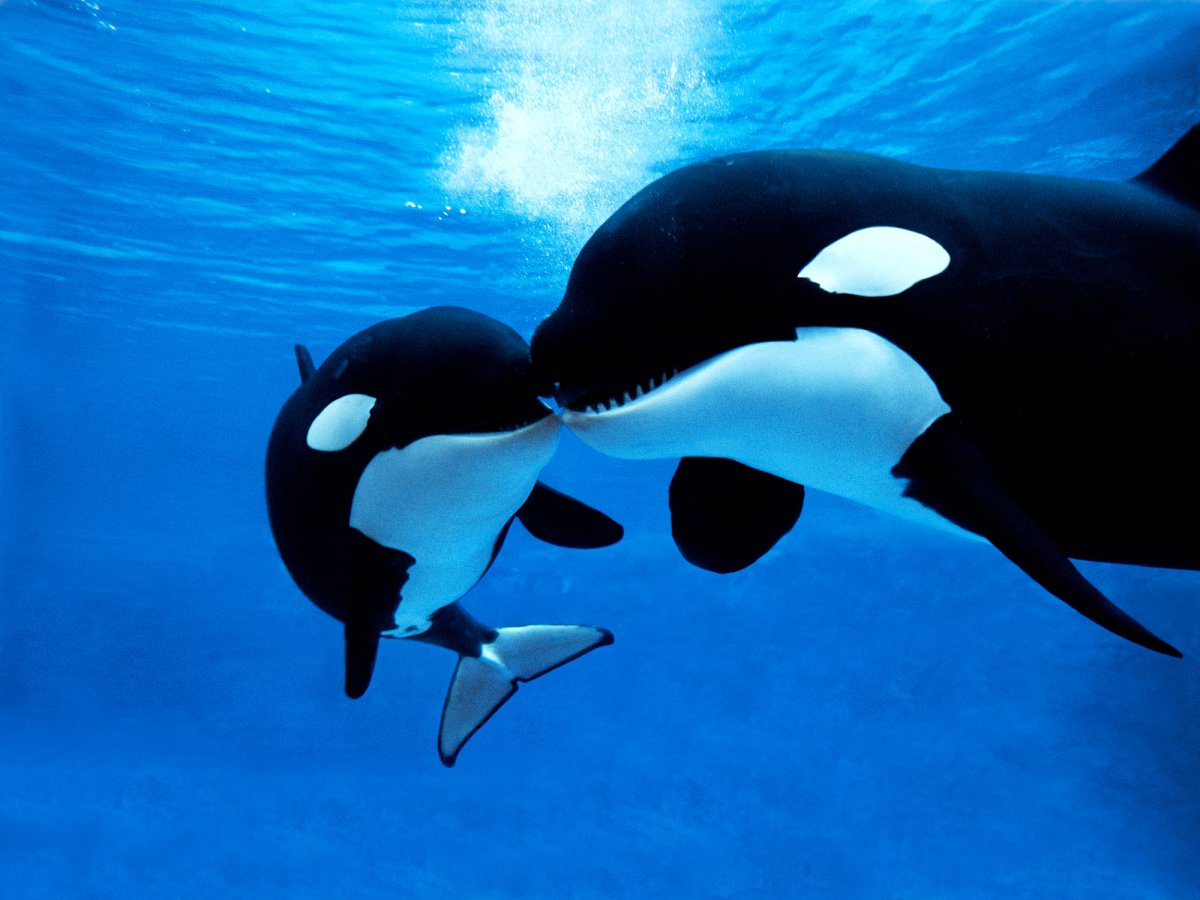A group of infamous orcas have been attacking boats off the Strait of Gibraltar at Spain's southern tip—and the trend now appears to be spreading.
Orcas have been causing problems for years in the Strait of Gibraltar and around the Iberian coast, but these attacks have intensified and spread in recent months.
The map below, using data from the Cruising Association and prepared by Newsweek, shows the extent of the interactions.
The attacks are taking place increasingly north, with a number in France and one even taking place off the coast of Scotland.
Data shows the attacks reached a peak in 2022, but have been common since 2020.
On June 19 of this year, 72-year-old retired Dutch physicist Wim Rutten was on his boat sailing from Lerwick, Scotland, to Bergen in Norway when he was attacked by an orca.
While he was fishing, an orca appeared from nowhere and rammed his boat.
"I said 's***!'," Rutten told The Guardian. "What I felt [was] most frightening was the very loud breathing of the animal."
The orca came back to the boat and circled it a few more times before finally leaving Rutten alone. The interaction was the first with an orca to be reported in waters that north.
In most of these incidents, the orcas repeatedly ram a boat's rudder. Scientists are not sure what motivates this behavior.

David Lusseau, professor of marine sustainability at the Technical University of Denmark, told Newsweek he doesn't believe the attacks come from aggression.
"I am sorry to say that if a killer whale (even more so with a group of killer whales) had aggressive intentions, most interactions would not end well, at all, regardless of the actions of the skippers," he said.
"So, it is my opinion that this is not aggressive behavior, and definitely not planned behavior with more complex motivations, such as revenge. vessels are objects in the environment of these killer whales. A few individuals figured out that they could manipulate those objects for some unknown motivation (play, social behavior, "dexterity" practice, fun, etc) and it stuck in this population as something to do.
"The question now is whether it is a fad that will pass by or a cultural trait which will become fixed in the population."
Lussaeu believes that this one isolated incident in Scotland is not enough to determine whether they are the same types of interactions being seen in the Strait of Gibraltar.
Orcas are known for being incredibly intelligent animals, and have previously shown evidence of adopting learned behaviors from senior members of a pod.
In the Strait of Gibraltar, one individual orca has been named by scientists as the main culprit for the attacks.
White Gladis and her pod have been ramming boats in the area for the past few years. In 2020, researchers with the Coordinator for the Study of Marine Mammals (CEMMA) said they were behind 61 percent of the attacks.
"I don't think we have a grasp of the motivation behind this behavior. We can only go by what are the common denominator for all these interactions: it is a subset of individuals from the population which is involved, the outcome of the interaction varies from tragic cases (boat fully disabled) to vessel leaving unscathed, to vessels not being approached in the first place," Lusseau said.
"There are not really commonalities in the details of the vessels with which the killer whales interact (such as size, engine type, hull shape etc), besides the focus on vessel parts. It looks like managing to take a 'trophy' away ends the interaction."
An alternative theory is that White Gladis may have suffered a traumatic moment involving a boat. The attacks could therefore be fueled by a motivation to prevent this from happening again.
Orca, just like other marine mammals, are often in danger of becoming entangled or hit by fishing vessels.
While Rutten's experience mirrors that of the ones seen further south, it seems the man had a lucky escape.
Some interactions in the Strait of Gibraltar have proved nasty—and sailors passing through are now highly aware of the creatures.
A Dutch team that had recently been competing in the Ocean Race— a yachting competition that is held every three or four years—had a terrifying encounter with the orcas while they passed through the region.
"We were aware, and realized that it would be a possibility," Bart Salemans, who was onboard the boat, told Newsweek. "We saw them appear and coming towards us."
Video footage posted to Team's JAJO's Instagram page shows two orcas swimming straight towards the yacht.
One orca heads straight for the rudder, banging its head on it repeatedly.
"It went pretty fast so there was no real time to really feel or get worried. There is some damage on the rudder but nothing structural," Salemans said.
A sailor has even been ambushed twice in these waters.
Dan Kriz, a delivery skipper with the company Reliance Yacht Management, previously told Newsweek that he had his first orca encounter in 2020.
"I was sailing with my delivery crew through the Strait of Gibraltar delivering a yacht when I was surrounded with a pack of eight orcas, pushing the boat around for about an hour," Kriz said.
"We were one of the first boats experiencing this very unusual orca behavior."
At the time, the orcas caused severe damage to the rudder. After the incident, Kriz and his crew were towed to shore in Barbate, Spain.
But three years later, on April 15, 2023, it happened again.
"While delivering a catamaran for the Catamaran Guru company, the same pack of orcas appeared out of nowhere," Kriz said.
"We were about to cross shipping lines and turn south to Canary Islands when we felt like we got hit bad with a wave, but with the second hit, we realized that the same situation from 2020 was happening. My first reaction was, 'Please! Not again." There is not much one can do. They are very powerful and smart."
It remains to be seen whether this trend will continue to other locations. But so far, it appears largely concentrated to the Gibraltar strait.
Scientists are continuing to look into potential reasons why.
"I guess the question is not unlike asking why would some humans engage in 'parkour,'" Lusseau said. "Minus the property destruction of course."
Uncommon Knowledge
Newsweek is committed to challenging conventional wisdom and finding connections in the search for common ground.
Newsweek is committed to challenging conventional wisdom and finding connections in the search for common ground.
About the writer
Robyn White is a Newsweek Nature Reporter based in London, UK. Her focus is reporting on wildlife, science and the ... Read more
To read how Newsweek uses AI as a newsroom tool, Click here.








